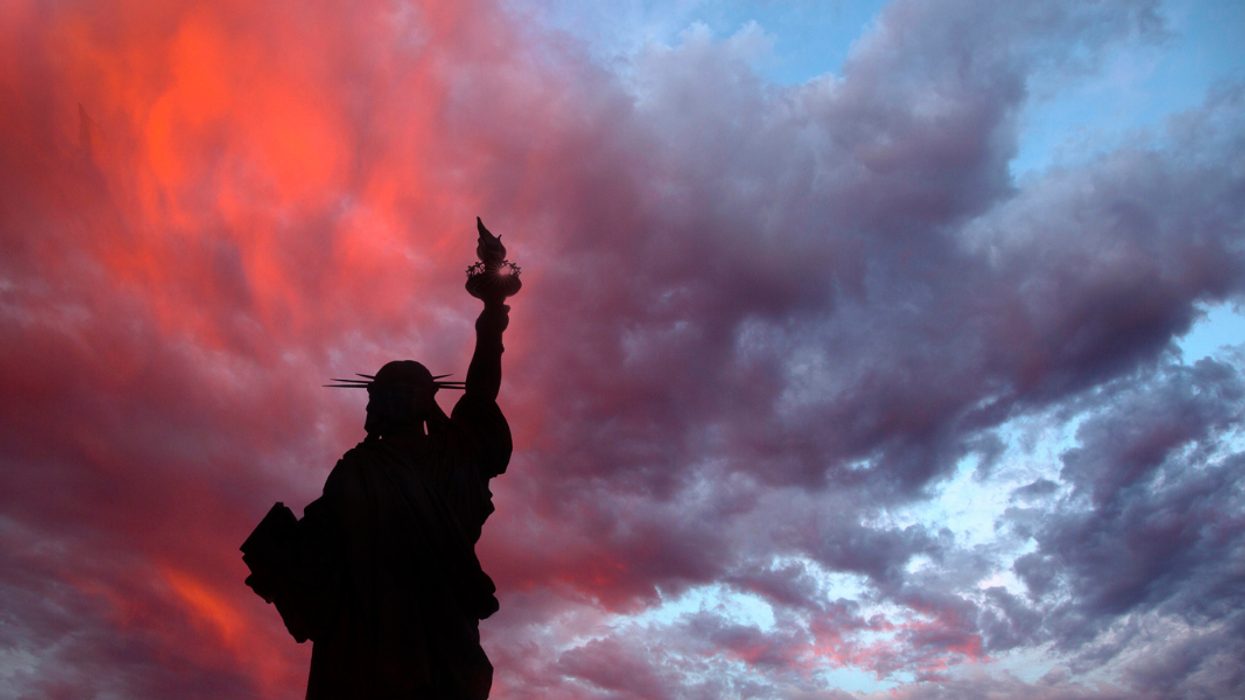Swearengin is an author, emotional & spiritual well-being coach, podcaster and content creator through his social media presence as Unconventional Pastor Paul. He talks religion and politics at times joined by his wife Ashley, a former elected official and community leader. Find him at Pastor-Paul.com.
American Christian churches celebrate each July with patriotic songs and pledges of allegiance - not allegiance to Almighty God - but to our country's flag and its symbolism of "freedom" secured through military might. Since Christians like to ask WWJD (What Would Jesus Do?), I do wonder if an incarnate Jesus in America today would celebrate the 4th of July weekend as do so many of our patriotic churches?
“Those who live by the sword, die by it,” Jesus is quoted in the Christian Bible. He didn't seem to be in alignment with the Zealots who were stirring chaos in attempt to force the despotic Roman government out of Palestine, nor with the "overturn-the-government" focus of those in his religious community who felt the major goal of their god was to... well... make their country great again.
In my past role as leader of a brick-and-mortar American Evangelical church, I refused even to display an American flag in our church building, much to the chagrin of some of our parishioners. Do I hate our country? Of course not. I do believe, however, in the teachings of Jesus that spirituality and faith should be rooted in a “kingdom” (or people group) that is above national boundaries, divisive echo chambers and petty squabbles.
“There is neither slave nor free, Jew nor Greek,” the Christian Bible says. This was a RADICAL statement for the first century Jewish Christian. They all had been taught that inclusion in their community gave them identity and met their basic human needs of safety, value and purpose. Now they were being told to forgo those exclusive benefits in order to bring their message of abundant life to foreigners and people of other religions - people with whom they'd been forbidden to share a meal in the past?
The Hebrew story of Jonah tells of his belief that hatred of foreign people was a God-given right. The story shows Jonah scolding God and stating he'd rather be dead than live in a world where that God would have mercy on "those people." Is not calling America a “city on a hill,” or declaring God's blessing on our military conquests any different than Jonah's attitude towards the Ninevites? Maybe God would say to us, as he did to Jonah, "Do you do well to feel this way" when we celebrate a belief that our country has special favor over others?
The first century religious leaders, who Jesus called “hypocrites” and “white washed tombs,” believed their job was to use political skill and religious piety to restore godly order and hierarchy in the world.
“If people follow Jesus, we will lose our temple (i.e. religious practice) and our country,” they said. Likewise, today's American Christians act as if heaven's top priority is for the U.S. to dominate the world economically and militarily, and that the Christian's job is to make that happen through the installation of Christian law into civil systems and even our legal code.
The story of Jesus demonstrates that we gain influence with people through service and a willingness to die for those around us - or at least die to self for the benefit of others. He preached of loving one's neighbor and then defined "neighbor" as that person of another race, religion or creed that a religious community feels is worthy of divine love and mercy. Nothing I see in the gospel story would give the slightest hint that Jesus would approve of militaristic and patriotic songs in a church when he once turned over temple tables and demanded it be restored as a "a house of prayer."
Therefore, does it not seem a disconnect to celebrate our ability, past and present, to preserve ourselves through violent acts and to declare "America First" as a useful motto for a follower of Jesus' teaching?
What if Christians celebrated the times we didn't go to war as vociferously as we celebrate military victory? Could there be a space where our sense of safety was more rooted in our spiritual faith, than in our faith in America's military power? And, if so, could we use even a small portion of the annual $557 billion military budget (larger than the budget of the world's next ten largest militaries combined) to follow the 2,000 commands of the Bible to seek justice for the poor, foreigner, marginalized and economically disadvantaged of our country and the world?
It seems Jesus believed this mindset shift could lessen our need for bombs, guns, jets and drones. And wouldn't that idea truly be something worth pledging allegiance to in our Sunday morning gatherings?



















Marco Rubio is the only adult left in the room